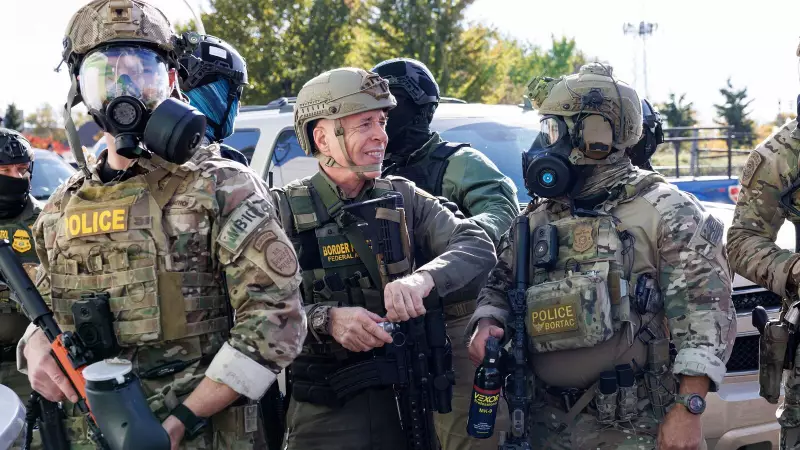
A federal judge in Chicago has taken the extraordinary step of summoning a top Border Patrol commander to explain the controversial use of tear gas during a Trump-era immigration crackdown known as Operation Midway Blitz.
US Magistrate Judge Susan Cox has ordered Border Patrol Commander Sean Gallagher to appear in court and provide testimony about the deployment of chemical agents during the 2021 operation. The legal move comes as part of an ongoing lawsuit challenging the tactics used by immigration authorities.
Operation Midway Blitz Under Microscope
The controversial operation, conducted during the final months of the Trump administration, targeted undocumented immigrants in the Chicago area. Court documents reveal that tear gas was deployed during enforcement actions, raising serious questions about the proportionality of force used against individuals.
Judge Cox's order represents a significant legal development in holding immigration enforcement agencies accountable for their tactical decisions. The magistrate judge has expressed particular concern about the circumstances surrounding the chemical agent deployment and the potential violation of protocols.
Legal Battle Intensifies
The court summons indicates growing judicial impatience with the Border Patrol's explanations regarding the incident. Legal experts suggest this could set an important precedent for oversight of immigration enforcement methods.
Key aspects of the case include:
- The specific circumstances that led to tear gas deployment
- Whether proper protocols were followed
- The impact on individuals subjected to chemical agents
- Potential policy changes resulting from the litigation
Commander Gallagher's testimony could prove crucial in determining whether the use of tear gas was justified or represented an excessive use of force during immigration operations.
Broader Implications for Immigration Enforcement
This legal confrontation comes amid ongoing debates about immigration enforcement tactics and accountability mechanisms. The outcome of this case could influence how federal agencies conduct future operations and the level of judicial oversight they face.
The Chicago court's assertive stance signals that judges are increasingly willing to demand transparency from immigration authorities, particularly when controversial tactics like chemical agents are involved.





